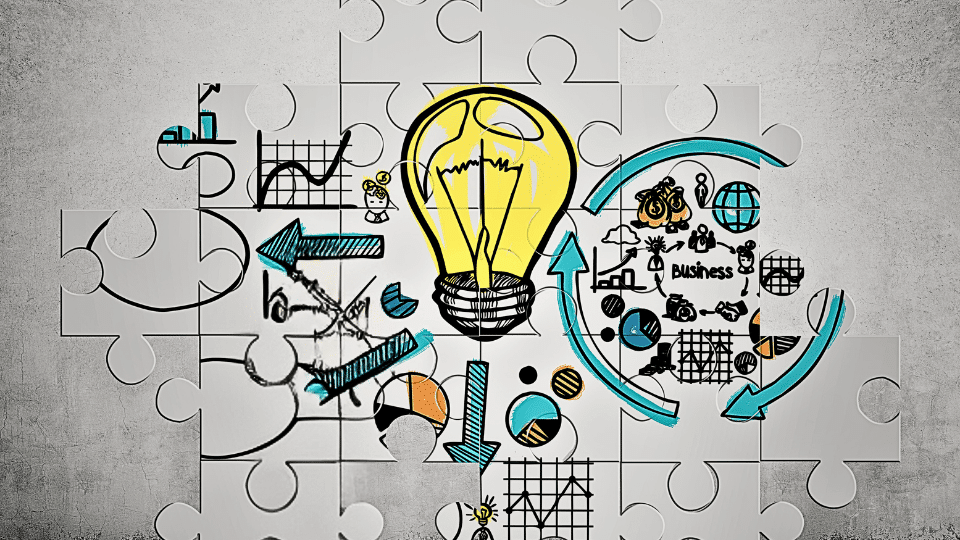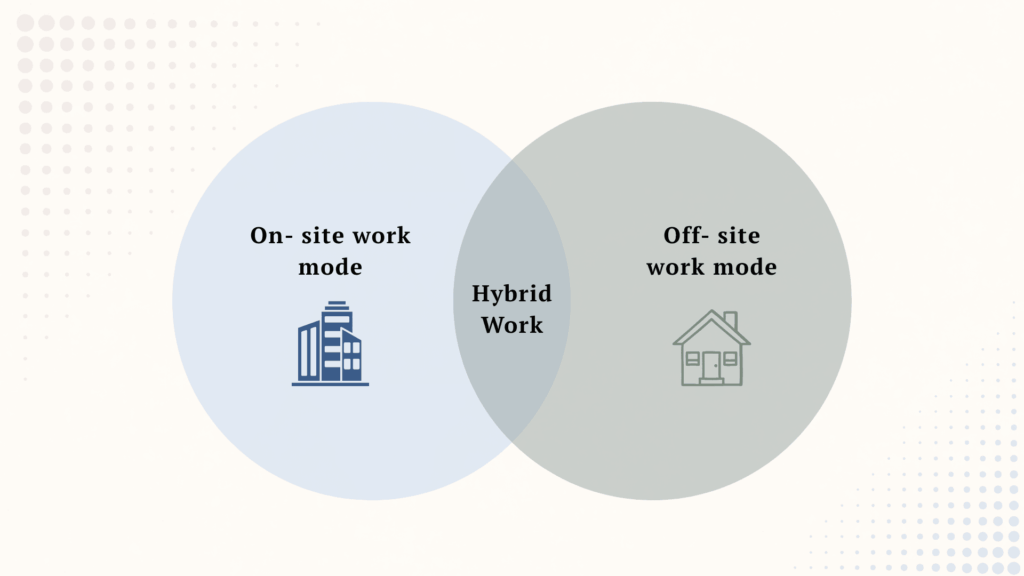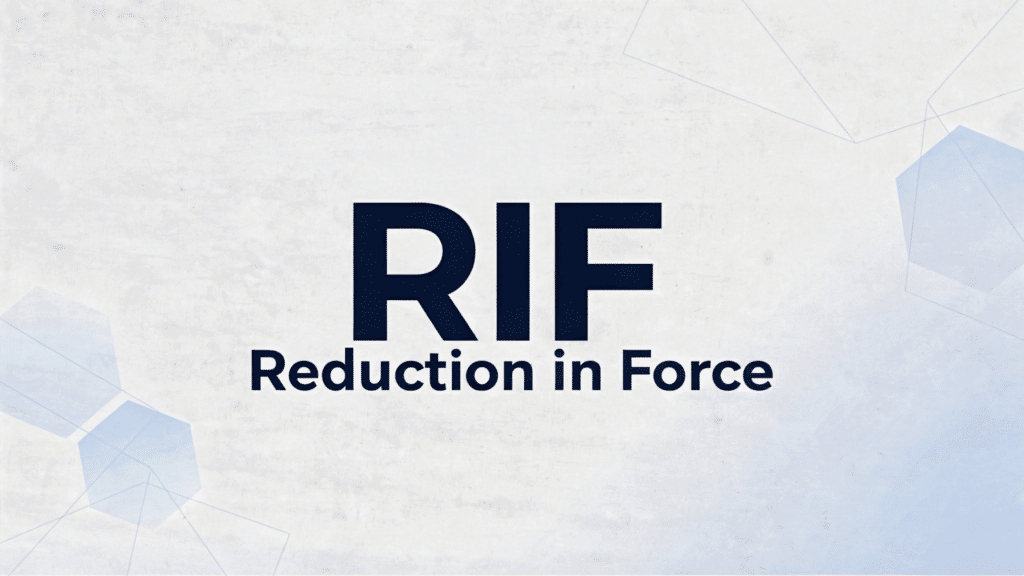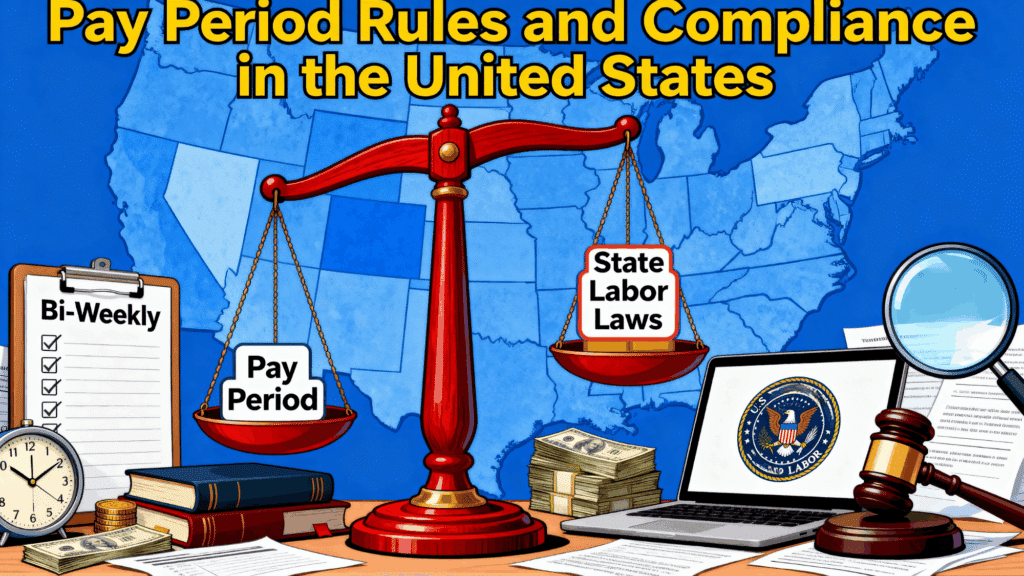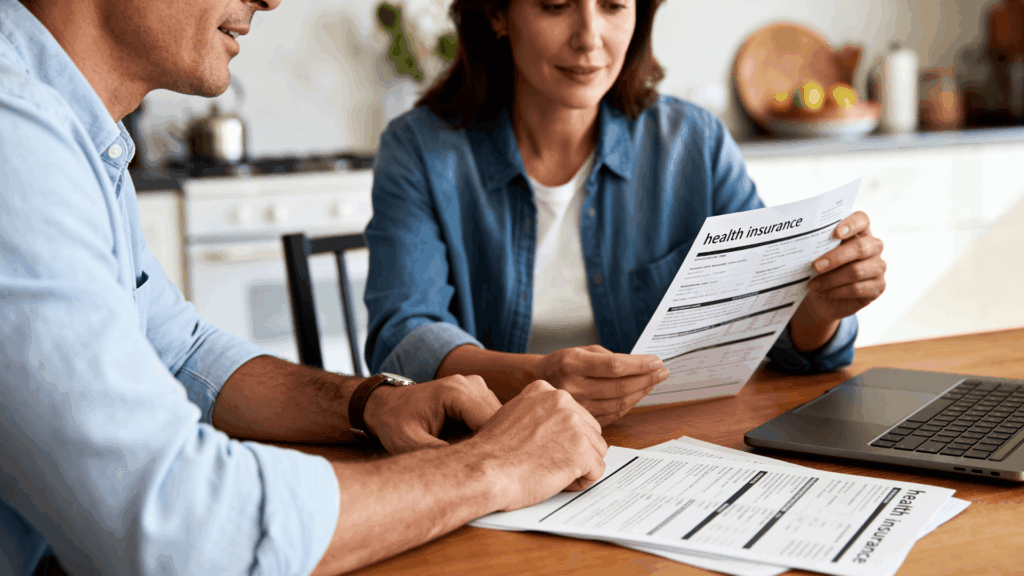You just finished what felt like a great interview.
The conversation flowed well, you answered their questions confidently, and you walked away feeling positive.
But your work isn’t done yet.
Mastering post-interview follow-up can make the difference between getting the job and being forgotten.
In this guide, you’ll learn exactly what to say in your follow-up message, perfect timing strategies, and common mistakes to avoid.
Why Follow Up After Interview Matters?
The follow up after interview is your chance to stand out from other candidates.
Learning how to follow up properly can make the difference between getting hired and being forgotten.
A well-crafted follow-up message indicates:
- Genuine Interest: Reinforces that the job role is essential to you.
- Communication Skills: Highlights your ability to maintain good relationships.
- Initiative: Marks you as a proactive candidate who takes extra steps to achieve their goals.
How Important Are Post-Interview Follow-Ups?
Post-interview follow-ups are crucial because they keep you fresh in the interviewer’s mind and reinforce your enthusiasm for the role.
- Timely and thoughtful follow-ups show professionalism and respect for the hiring process.
- They highlight strong interpersonal skills valued by employers.
- Ignoring follow-ups risks being overlooked, even after a good interview.
How to Follow Up After Interviews?
Following up after an interview is a critical step to reinforce your interest and leave a lasting positive impression.
It’s important to approach your follow-up with clarity, personalization, and timely execution.
Below are key strategies to effectively follow up after interviews, ensuring your communication is impactful and respectful of the hiring process.
1. Craft a Clear Message
Your follow-up message should begin with a sincere thank you to the interviewer for their time and consideration.
Clearly express your continued enthusiasm for the role, which suits your genuine interest.
- Begin with a polite greeting and a gesture of appreciation.
- Clearly state your interest in the role without repeating your resume.
- Mention a unique discussion point that resonated with you.
|
Example: Dear [Interviewer’s Name], Thank you for meeting with me yesterday to discuss the [Position Title] role. I enjoyed learning about your team and the exciting projects, especially our discussion about [specific topic], which aligns with my experience in [briefly relate your experience]. I am very enthusiastic about this opportunity and look forward to the next steps. Please let me know if you need any additional information. Best regards, [Your Full Name] |
2. Be Concise and Focused
Hiring managers often review numerous emails, so keeping your follow-up brief and relevant increases the likelihood that they will read it thoroughly.
Concentrate on highlighting your key qualifications and why you feel you are a good fit for the position.
- Limit your message to a few short paragraphs.
- Focus on one or two strong points from the interview.
- End with a polite offer to provide any additional information.
|
Example: Hello [Interviewer’s Name], Thank you again for the interview. I’m excited about the possibility of contributing my skills in [specific area] and believe I would be a good fit for the team. Please don’t hesitate to contact us for any further information. Best Wishes, [Your Full Name] |
3. Proofread Before Sending
A flawless follow-up message shows professionalism and strong communication skills, both highly valued by employers.
Take the time to carefully proofread your email to catch any spelling, grammar, or formatting errors.
- Use spell check and read your message aloud.
- Ensure that names and titles are accurate and up to date.
- Keep formatting clean and easy to read.
|
Example: Before sending an email, double-check:
|
By following these steps on how to follow up after interviews, you can increase your chances of making a memorable and positive impact on potential employers.
When to Follow up After Interviews?
Timing plays a crucial part in leaving a positive impression.
Send your follow-up message promptly within 24 to 48 hours of your interview to demonstrate both enthusiasm and respect.
If the interviewer shares a timeline, wait until after that date before reaching out again to show patience.
What to Say in Your Follow Up Communication?
To make your follow-up impactful, ensure your message meets these two objectives.
This ensures your communication is focused, impactful, and effectively reinforces your interest while leaving a positive impression.
1. Express Genuine Appreciation and Interest
Begin by specifically thanking the interviewer for their time and expressing your continued enthusiasm
This demonstrates appreciation and builds a positive rapport
- Thank the interviewer by name for their specific time.
- Clearly state your interest.
|
Example: Dear [Interviewer’s Name], thank you for taking the time to meet with me yesterday about the [Position Title] role. |
2. Reference Specific Interview Discussion Points
Demonstrate that you were actively engaged by referencing a particular challenge, project, or goal mentioned during the interview.
It helps the interviewer remember you among many candidates and shows genuine interest.
- Pick one or two key points from your discussion.
- Explain why these points resonate with you.
|
Example: Our discussion about expanding into new markets was fascinating because it aligns with my experience in market research and strategy development. |
Sample Follow-Up Emails to Send After an Interview
Including professional email templates in your job search toolkit can help you craft effective messages.
Below are examples tailored for different situations to guide you in writing your own.
1. First Follow-up Email ( Within 24 – 48 hours )
|
Subject: Thank You for the Opportunity – [Position Title] Dear [Interviewer’s Name], Thank you for taking the time to meet with me yesterday about the [Position Title] role. I enjoyed learning about your team and the exciting projects at [Company Name]. Our discussion about [specific topic] really resonated with me, as it aligns well with my background in [briefly relate your experience]. I’m excited about the opportunity to contribute to your team and look forward to the next steps. Please let me know if you need any more information. Best regards, |
This email shows appreciation and reiterates your enthusiasm, leaving a positive first impression while keeping the door open for further interaction.
2. Second Follow-Up Email (After 3-5 Days of No Response)
|
Subject: Following Up on [Position Title] Interview Hi [Interviewer’s Name], I hope you’re doing well. I wanted to follow up on the [Position Title] interview I had on [date]. I remain very interested and would appreciate any updates on the hiring process when you have a chance. Thanks again for your time. I look forward to hearing from you. Kind regards, |
This polite follow-up reminds the interviewer of your interest and respectfully requests updates without coming across as impatient.
3. Panel Interview Follow-Up
|
Subject: Thank You – [Position Title] Panel Interview Dear [Interviewer’s Name], Thank you for the engaging conversation during the panel interview on [date]. I appreciated your insights on [specific topic], which made me even more enthusiastic about the role. I look forward to the opportunity to contribute to your team and am happy to provide any additional information as needed. Best wishes, |
Personalizing your message by referencing their contribution shows attentiveness and makes your follow-up stand out in multi-interviewer settings.
4. Follow-Up After Phone or Video Interview
|
Subject: Thank You for the Interview – [Position Title] Hi [Interviewer’s Name], Thank you for speaking with me over the phone/video yesterday. I appreciate your understanding during the brief technical glitch, and it didn’t affect my excitement about the [Position Title] role. Our discussion about [specific topic] was very interesting, and I’m eager to move forward in the process. Looking forward to the next steps. Sincerely, |
Acknowledging technical difficulties professionally demonstrates your patience and reinforces your strong interest in the role.
5. Expressing Interest After Multiple Rounds
|
Subject: Continued Interest in [Position Title] Role Dear [Interviewer’s Name], I wanted to thank you again for the opportunity to continue through the interview process for the [Position Title] role. Each conversation has increased my enthusiasm and confirmed that my skills in [mention specific skills] are well-suited for this position. Please let me know if there is anything else you need from me. Best regards, |
This email keeps your name fresh in their mind while emphasizing your growing excitement and suitability after multiple discussions.
6. Follow-Up to Offer Additional Information
|
Subject: Happy to Provide More Information – [Position Title] Hi [Interviewer’s Name], Thank you once again for the opportunity to interview for the [Position Title] role. If you need any extra information, references, or examples of my work, please don’t hesitate to reach out. I’m excited about the possibility of joining your team. Best wishes, |
This follow-up email offers to provide further details, demonstrating your willingness and readiness to assist, thereby reinforcing your eagerness.
Tailoring Follow Up Messages for Interview Types
Different interview formats, such as phone, video, and panel, require tailored approaches to your follow up after interview.
Personalizing your message ensures professionalism and strengthens your connection with interviewers.
1. Phone or Video Interviews
In your follow-up after a phone or video interview, briefly mention any technical glitches you experienced to demonstrate professionalism and patience.
Including specific points from your discussion helps highlight your engagement and leaves a positive impression.
|
Examples:
|
2. Panel Interviews
After a panel interview, send a distinct follow-up message to each interviewer, referencing their individual contributions or questions.
This personal touch shows you valued their input, paid close attention, kept the core message consistent, and emphasized your enthusiasm and strong fit for the position.
|
Examples:
|
By customizing follow-up messages for each interview format and individual interviewer, you demonstrate professionalism and strong communication skills.
What to Do If You Don’t Hear Back?
Sometimes, despite sending a thoughtful follow up after interview, you may not receive a response. Knowing how to proceed appropriately is crucial for maintaining a positive impression.
If you haven’t heard back within 3 to 5 days after your initial message, it’s appropriate to send a polite and concise second follow-up.
How to Phrase Your Second Follow-Up?
In this message, briefly reassure your enthusiasm for the opportunity and kindly ask if there are any updates regarding the hiring timeline.
|
Example: I wanted to follow up regarding the [Position Title]. I remain very interested and would appreciate any updates you might have on your hiring timeline. |
By following these steps in your follow-up after the interview, you can reinforce your candidate’s interest while respecting the employer’s timeline.
Common Mistakes to Avoid in Your Follow-Up
Avoid these common mistakes in your follow up after interview that could damage your chances of moving forward.
- Repeating your entire resume: Focus on relevant skills instead of your whole resume.
- Too casual or informal tone: Use a bold tone; avoid casual greetings
- Generic or template-like messages: Personalize the message with details from the interview.
Pro Tips for Follow Up Success
Effective follow up after interview increases your chances of making a strong impression. Use these tips to craft thoughtful, timely, and polished messages.
- Research company updates: before following up, mention recent news.
- Send a LinkedIn connection request: with a brief message about your interview.
- Be prepared to provide references: or additional information promptly if requested.
- Keep track: of your follow-ups to manage timing and responses efficiently.
Conclusion
Knowing exactly what to say in your follow up after interview can significantly impact your chances of landing the job.
By expressing genuine appreciation, referencing key points from the interview, and maintaining a concise and polished tone, you can leave a lasting positive impression.
Remember to tailor your messages for different interview formats, proofread carefully, and follow up appropriately if you don’t hear back.
Have you had success with interview follow-ups?
Share your experiences and what worked best for you in the comments below!
Frequently Asked Questions
What Are the Best Strategies to Prepare for an Interview?
Focus on practicing coding challenges, reviewing fundamental concepts, and familiarizing yourself with relevant tools and technologies.
How to Improve Your Resume for More Interviews?
Customize your resume for each job, emphasize quantifiable accomplishments, and maintain a clear, well-structured format.
What Should I Do if I Receive Multiple Job Offers?
Evaluate each offer carefully by considering the job role, compensation, career growth, and company culture before deciding.
How Can I Negotiate a Higher Salary During a Job Offer?
Know the market value for your role, clearly communicate your strengths, and negotiate with confidence and respect.

